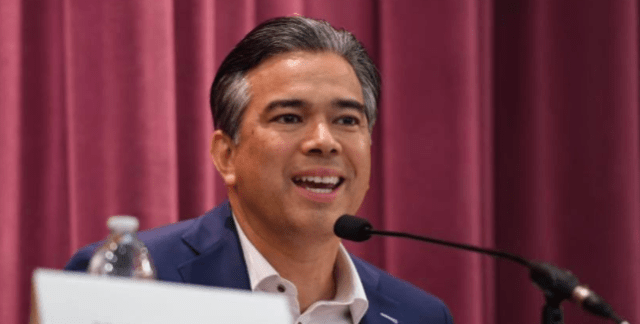Sacramento, Calif.- California legal cannabis program is larger than ever. But that does not mean employees cannot be fired for using it, even with a valid medical recommendation.
A bill in the California Assembly could change that. AB 2069 was recently introduced by Assemblyman Rob Bonta and co-authored by Assemblyman Bill Quirk. The bill was written to end cannabis workplace discrimination for patients. If enacted, “This bill would prohibit an employer from engaging in employment discrimination against a person on the basis of his or her status as, or positive drug test for cannabis by, a qualified patient or person with an identification card,” according to the text of the bill.
Bonta has been promoting the bill on local news stations. He has also taken to Twitter to promote AB2069:
Good discussion with @KRON4VLiviakis and @GrantLodes on @kron4news about my #AB2069 to stop discrimination against medical cannabis patients by employers because of the type of medicine they choose. To punish these patients is inhumane and wrong! https://t.co/1GvbyCLEQ2
— Rob Bonta (@RobBonta) February 20, 2018
AB2069 would not necessarily mean that cannabis patients are free to medicate on site or show up to work impaired according to the bill’s text:
The bill would also provide that it does not prohibit an employer from terminating the employment of, or taking corrective action against, an employee who is impaired on the property or premises of the place of employment or during the hours of employment because of the use of cannabis.
There is one part of the bill that patients may not love but could be seen as an essential protection for employers in California. Since cannabis is still a federally banned substance, companies working under a federal contract are obligated to maintain a drug-free work environment. AB 2069 would not prevent organizations with federal contracts from terminating employees who are cannabis patients.
The bill would provide that it does not prohibit an employer from refusing to hire an individual or discharging an employee who is a qualified or person with an identification card, if hiring or failing to discharge an employee would cause the employer to lose a monetary or licensing-related benefit under federal law.
A 2008 California Supreme Court decision ruled that employers could drug test and release employees under the Fair Employment and Housing Act. The court wrote that Proposition 215., the voter ballot initiative passed in 1996 that legalized medicinal cannabis use in California, protected patients from criminal charges for cultivation and possession but did not guarantee the right to use the drug.












